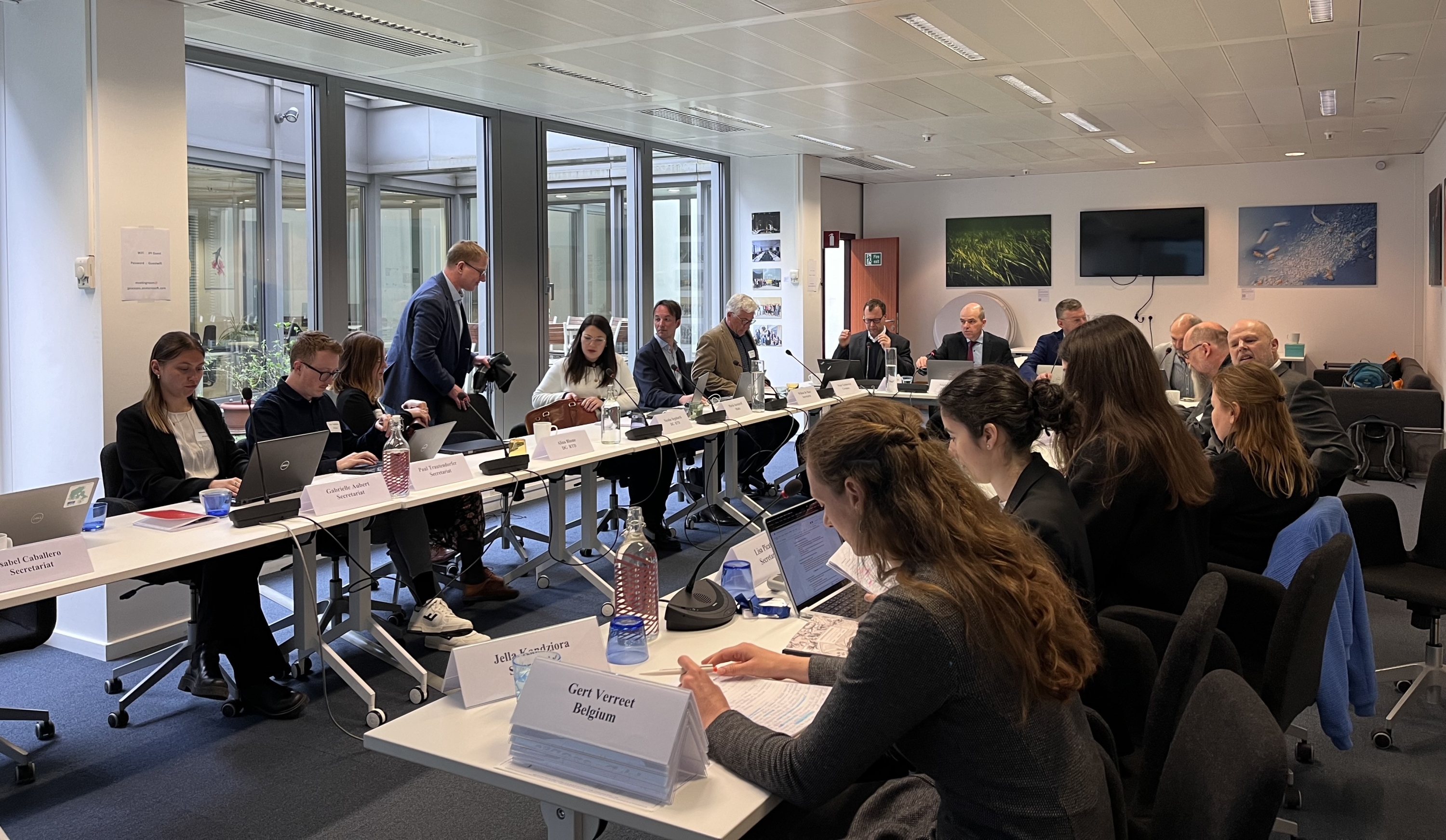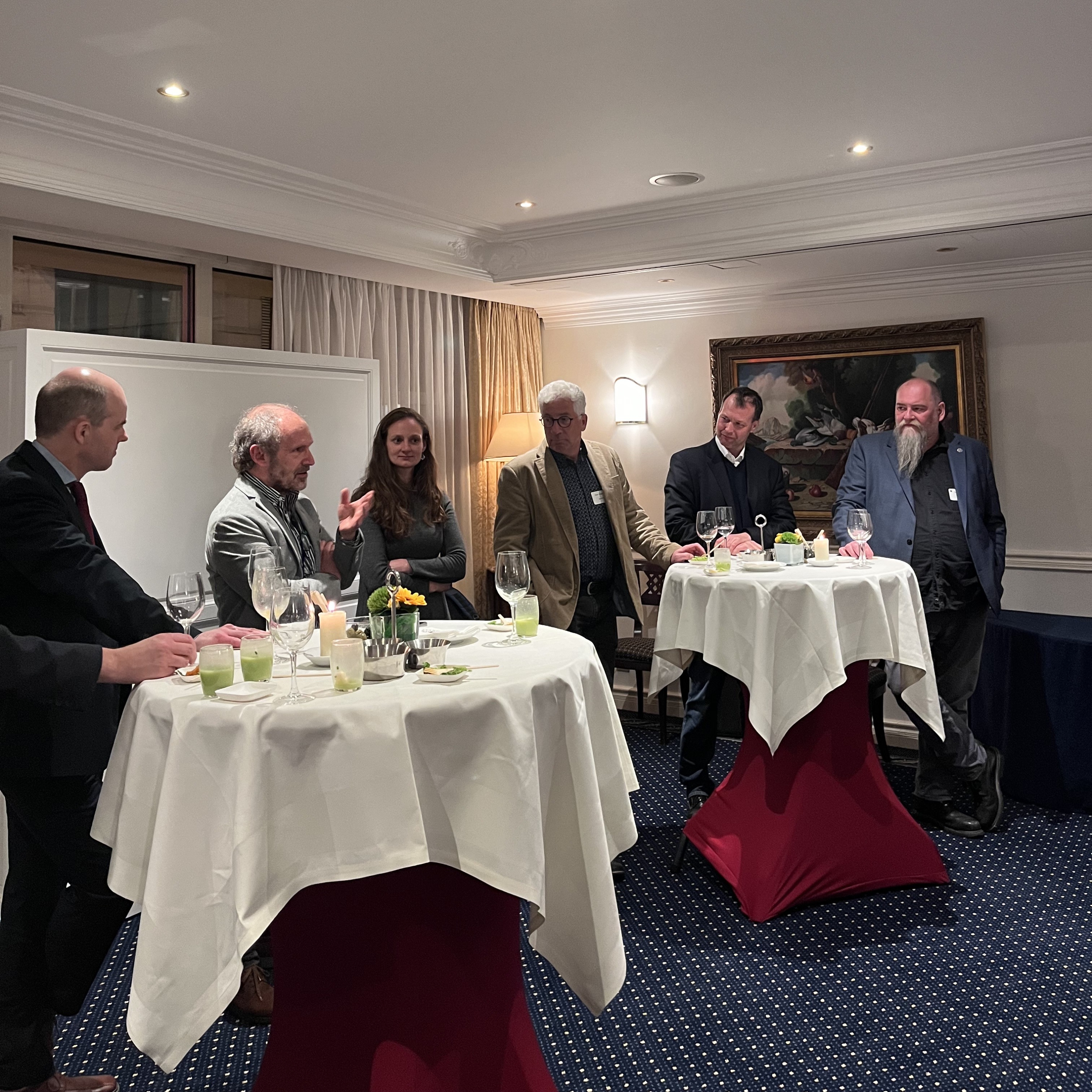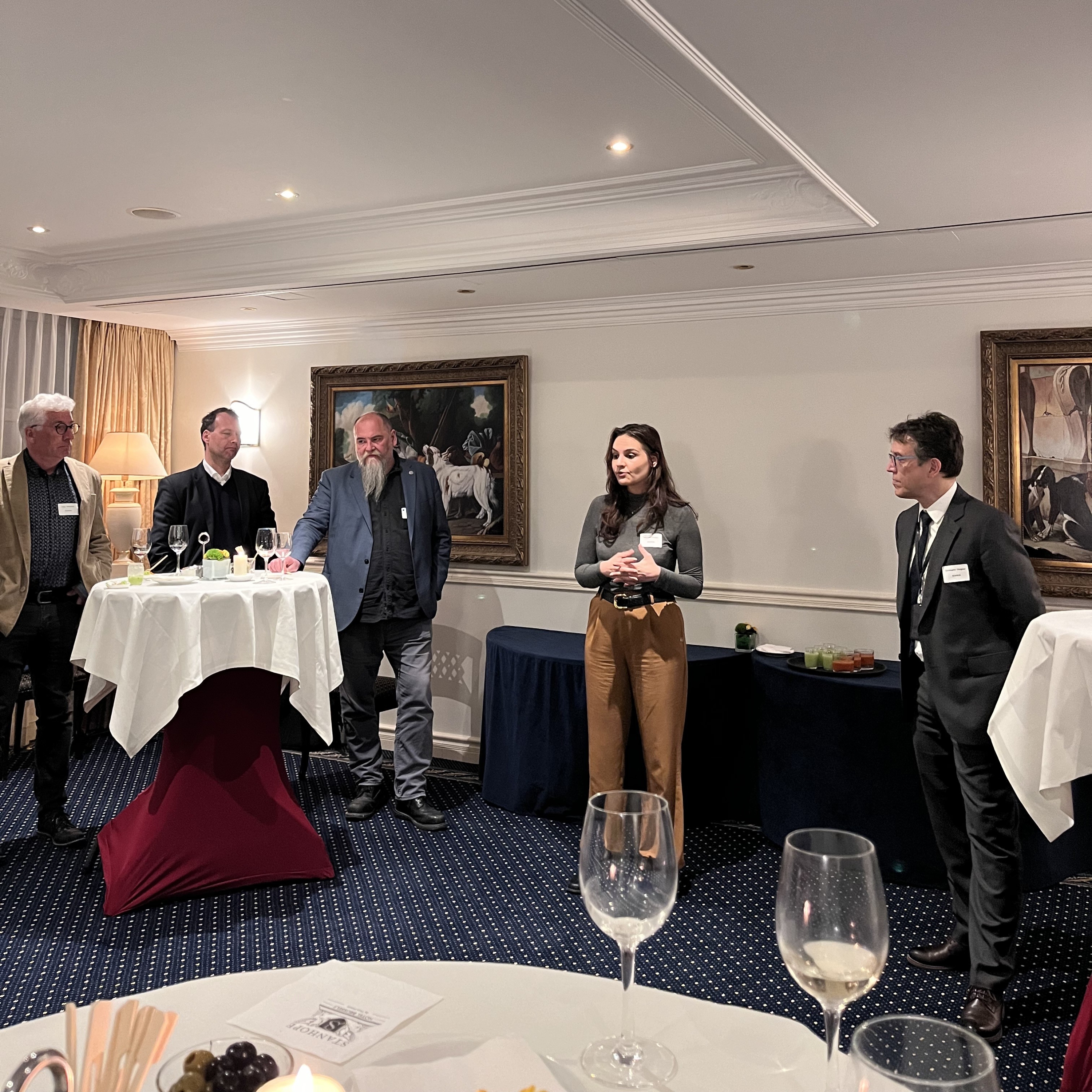Through a set of potent decisions, the Board sent several strong signals. First, JPI Oceans remains agile with a revolving portfolio of Joint Actions, implementation tools, strategic engagements, and project involvements. Second, it builds on active exchange with EU institutions, including the most relevant Directorates-General of the European Commission, to ensure mutual benefits between national and European science-policy efforts. Lastly, JPI Oceans relies on a solid organisational basis with an evolving participation model, a healthy economic foundation, and a keen strategic vision for the next five years.
Held on 26–27 March in Brussels and online, the meeting brought together representatives from JPI Oceans’ member countries, the European Commission, and guests from further interested countries. The agenda balanced in-depth discussions on governance and strategy with decisions on fast-moving items, reflecting JPI Oceans’ ability to plan long-term while remaining agile in response to ongoing developments in science and policy.
One of the big outcomes of the meeting was the approval of a new Joint Call on Blue Carbon. Backed by over €2.15 million in initial commitments from Ireland, Norway, and Malta, and with Germany, Portugal, and Canada actively weighing options to join, the call signals momentum behind marine-based solutions for climate and coastal resilience.
The call will build on the groundwork of the JPI Oceans Knowledge Hub on Blue Carbon, which mapped data gaps, aligned methodologies, and assessed how well marine carbon sinks are accounted for in climate policy. While we are now moving fast towards a call launch, the doors remain open still a bit longer for other countries to join in.

Beyond funding, the progression of Joint Actions was again an exciting element of the meeting.
Some are just getting started, others have been around for a while; that dual track—staying the course while scouting what’s next—is signature JPI Oceans.
Among the most recent additions, a Joint Action on Offshore Freshened Groundwater was officially adopted after concluding its scoping phase. It’s a lesser-known but potentially vital topic: an overlooked freshwater resource, sitting quietly under the seabed, that might hold answers for coastal resilience. The Board also endorsed the governance structure and timeline of the Rapid Response Action on the Atlantic Meridional Overturning Circulation (AMOC), the climate-critical current system whose potential weakening would have consequences for Europe and probably worldwide. Developed in collaboration with JPI Climate and with connections with the All-Atlantic Research and Innovation Alliance, the initiative is designed to fast-track an authoritative review of the latest state of knowledge on potential changes in AMOC and associated impacts for better scientific understanding and policy decisions.
Meanwhile, more mature initiatives already underway entered new stages. The Ocean Oxygen Loss Scoping Action drew expert commitments from five countries (Belgium, Germany, Ireland, Italy, and Norway) with a concept paper for a full Joint Action expected later this year. The Ocean Carbon Capacities initiative, in turn, saw its updated architecture approved to strengthen the supply of reference materials, address the undersampling of ocean CO₂, and establish regular auditing of surface observations.
To keep the wind in the sails, the Board also gave their thumbs up to open a new round of solicitations for new Joint Action ideas—an open invitation to countries and communities to help shape what topics JPI Oceans might take on next.
The two days in Brussels were also a moment to take stock of JPI Oceans’ strategic direction on all levels: its internal governance, its voice in the EU science-policy space, and its place in the pan-European marine research landscape.
Internally, the Management Board renewed the mandates of Vice Chairs Angelo Camerlenghi from Italy and Benjamin Kürten from Germany, and elected Monika Kędra from IOPAN in Poland into the Internal Advisory Committee. The decision grants both continuity in leadership and room for fresh perspectives.
Externally, JPI Oceans continues to prove its value as a convener, inviting science and policy to sit at the same table, and making them talk. Representatives from DG Research and Innovation, DG Maritime Affairs and Fisheries, DG Environment, and the Joint Research Centre of the European Commission joined the meeting to exchange perspectives on ocean governance and research priorities. The Secretariat used this opportunity to present its contribution to the European Commission’s consultation on the Ocean Pact, a cornerstone of the current EU legislative term’s approach to ocean and blue economy topics.
Invitations were also sent to the European Parliament, with MEPs Christophe Clergeau and Ana Vasconcelos (Chair and Vice-Chair of the SEArica Intergroup) joining an evening reception on the first day. It was the perfect setting for participants to get to know each other and build a better understanding of where everyone is coming from.


Finally, grounded in Europe but facing outwards, the Board meeting reaffirmed JPI Oceans’ active role in Strategic Engagements such as the All-Atlantic Ocean Research and Innovation Alliance and the Sustainable Blue Economy Partnership.
These connections position JPI Oceans at the crossroads of national ambitions, European collaboration, and transnational frameworks.
Less glamorous but no less essential and positive in its outcomes and outlooks, the administrative part of the meeting approved healthy finances, budget plans and resourcing strategy for JPI Oceans, assuring that JPI Oceans’ ambitious strategic vision is built on solid fiscal foundations. Potentially impactful Board discussions included measures to strengthen the increasingly popular Knowledge Hub format, and the approval of schemes for observer country status and third country participation in Joint Actions.
Looking at the rest of the year, JPI Oceans is not easing up. In June, the UN Ocean Conference and the One Ocean Science Congress in Nice will offer high-profile platforms to showcase several Joint Actions and Strategic Engagements.
Further down the road, the next Management Board meeting on 15–16 October on the Greek island of Rhodes will review progress and guardrail JPI Oceans’ post-2025 future. Discussions will centre on the upcoming 2026–2030 Strategy Framework, to be finalised by the year’s end.
Through new initiatives and reaffirmed connections, JPI Oceans is moving forward with purpose, grounded in cooperation and ready for the future.
The JPI Oceans communications team captured discussions and networking moments from the Management Board meeting, along with interview snippets featuring JPI Oceans Chair Niall McDonough (Ireland) and Internal Advisory Committee member Maria Azzopardi (Malta). Follow us on LinkedIn, Facebook, X or Instagram and never miss an update!